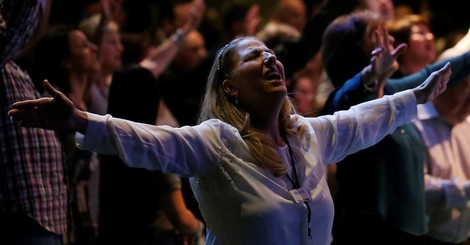Your podcast discovery platform
Curious minds select the most fascinating podcasts from around the world. Discover hand-piqd audio recommendations on your favorite topics.

piqer for: Globalization and politics Global finds Climate and Environment
Javier is a Berlin-based multimedia journalist. He completed a MA in International Journalism at City, University of London and is focused on humanitarian and conflict issues.
With experience in several countries, he's covered the refugee crisis, Turkey's coup attempt and the Kurdish conflict.
Among others, his work has been published at ABC News, Al Jazeera, Channel NewsAsia, RBB, IRIN News, El Confidencial, Público or Diario ABC.
Trump is Breaking Apart The Evangelical Community
When thinking about evangelicals, we rapidly get an image of devoted people, praying in a trance-like state. We tend to imagine highly conservative groups of white people, who could accurately be described with extreme concepts, such as fundamentalists or fanatics.
And it's true for some, but not for the vast majority. Actually, evangelicalism is far more diverse than we presume.
First of all, it's very difficult to identify the approximately 62 million Americans labeled as 'evangelists'. Emma Green explains it in her article for the Atlantic:
Evangelicals are a notoriously difficult group to define. Many political exit polls determine who is evangelical by asking a single question along the lines of, “Do you consider yourself to be born again or evangelical?” This often confuses more than it clarifies.
But media coverage often also forgets almost completely about the great number of African American, Latino and Asian evangelicals, as well as about those white evangelicals who are against the Republican party.
The consequence? It seems as if they were a monolithic group firmly supporting Donald Trump. In fact, what Trump's policies, comments and tweets are really doing is polarising the community.
The article quotes parts of the book Still Evangelical?, in which Christian leaders reflect oo the impact of Trump's presidency on their understanding of the faith.“Evangelicals on the left and right are utterly embarrassed about one another,” wrote Galli. “Each wants to disassociate itself from the other because of attitudes about the sitting president.”
Many liberals, leftists and democrat voters enjoy imagining conservative white evangelicals worshipping a US president whose record as a pious Christian is more than questionable. Instead of reaching out to the many evangelicals who despise Trump, they keep either not listening or simply making fun of their believes – not a clever move in order to get rid of Trump as soon as there is a new election.
